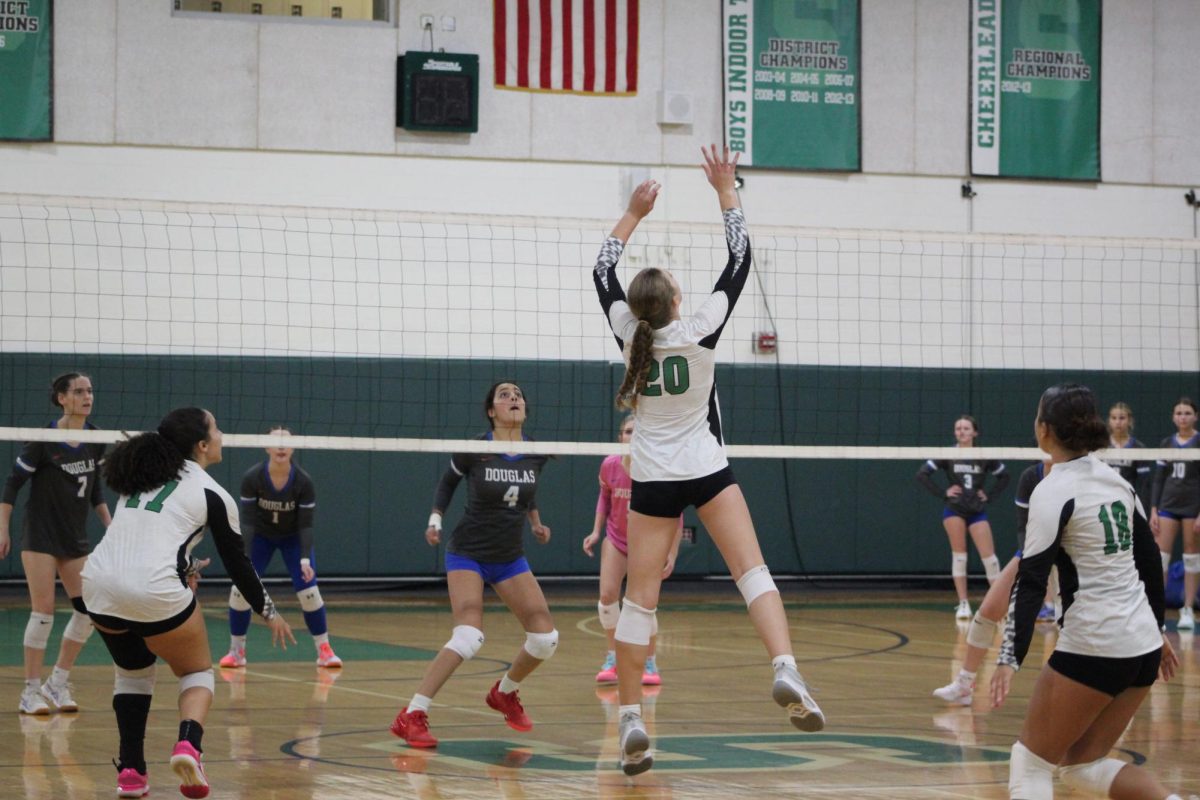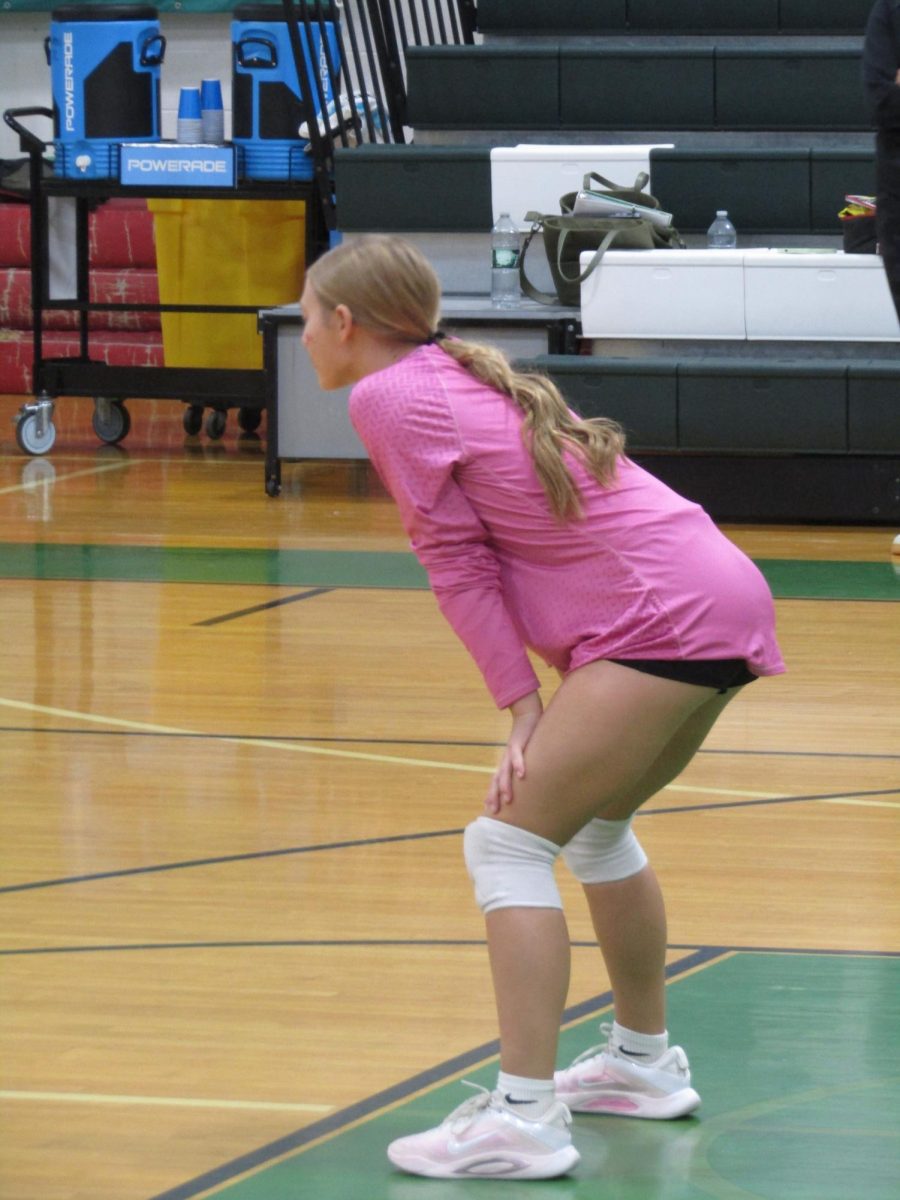Dear America: Anxiety Impacts Students
Anxiety can have a severe effect in the school setting.
May 25, 2022
Nervousness is a feeling that we all are familiar with. Whether it be an upcoming test or presentation, your mind is filled with endless thoughts, and your heart is racing; you feel as though you cannot breathe correctly.
Many interchange and misinterpret the words “anxiety” and “nervousness” as if they are the same. According to the Oxford English Dictionary, anxiety is “a feeling of worry, nervousness, or unease.” While others like to describe anxiety with synonyms such as worried, stressed out, and overwhelmed, it, in turn, diminishes the struggles of a mental illness that approximately 4.4 million children between the ages of 13-17 have been diagnosed with, as noted by the CDC.
Living with anxiety can be both emotionally and mentally draining. Dealing with frequent anxiety symptoms can cheat you out of everyday joy, confidence, and sleep. According to GoodTherapy, anxiety does not always have to be considered harmful. Due to being anxious, people tend to be more intelligent. “Anxious people can be incredibly good researchers, critical thinkers, and analyzers.” Contradicting the typical assumption, anxiety can improve both your mental and emotional intelligence. Students impacted by anxiety can protect themselves, reflect on their deepest core values, and discover their fullest potential.
While some students feel unbalanced and overwhelmed, some scientists claim that anxiety can teach you to guide yourself through: social time, work, rest, activity.
Mental health is a struggle for the person experiencing it and the people who care about them. Anxiety disorders cause people to feel frightened, distressed, or uneasy. As claimed by KidsHealth, ” Students with anxiety disorders may show symptoms such as: having trouble concentrating in class or completing classwork, have physical symptoms, and may need to work with a school counselor or therapist.” Some common disorders kids and teens are affected by include: generalized anxiety disorder (GAD), Phobias, Social anxiety, Selective mutism, Panic disorder, and Separation anxiety.
As mentioned, cognition and performance are essential to each other. The issue surrounding academic progression in children or young adults who struggle with an anxiety disorder is that it impairs the thought process. Mental stress or tension tends to take precedence over the overall thinking process, which means children may not be able to think coherently when they’re anxious. IN NowPsych.Com, “research has shown that anxiety can have a tangible effect on our working memory. People have a harder time retaining information when they’re anxious.”
Anxiety is one of the most significant predictors of academic performance. Left untreated or unattended, anxiety disorders can make it extremely difficult for students to learn or succeed in school. Students who struggle can experience a passive attitude towards their studies, a lack of interest in learning, and poor performance in exams and assignments. In some cases, creating and maintaining relationships between peers and teachers could be difficult. Avoiding school or even missing multiple school days could result in students’ behavior with anxiety.
Essentially, students with anxiety disorders are more likely to perform poorly academically. Therefore, the level of achievement decreases by the day. According to ScienceDirect, their research indicates that “study anxiety” has two layers: physiological arousal and cognitive anxiety. Adopted from the Catastrophe theory, which explains the relationship between anxiety and performance, mental pressure negatively correlates with performance and physiological effects on performance. This diagram, produced by Procedia Social and Behavioral Science, was the first model of the components to study anxiety.
Anxiety can have a severe effect in the school setting. These issues then can manifest into behavioral problems, academic performance issues and affect social interactions. Experts state that having moderate levels of anxiety can be guided to a more positive standpoint, benefiting students to obtain more drive towards their schoolwork and do what is necessary to succeed. However, having high anxiety levels can cause a downward spiral that can ultimately obstruct any academic progression, essentially shutting the brain down.
So, how can you help someone with anxiety, especially about school? While acknowledging where the source of someone’s fear is coming from, some kids might not be quite ready for that. Instead, here are helpful tips!
School anxiety can be very frustrating for the person experiencing it and for peers or teachers; the goal is to make sure not to put the brain into more of a panic mode. The goal is not to eliminate anxiety but to help the person manage it by taking a walk, practicing some deep breaths, focusing on the day’s positive parts, or even talking it out. Anxiety does not always have to be talked about negatively; instead, empower the person feeling this way by expressing a positive outcome. When it comes down to how peers react to anxiety issues, teaching key things such as empathy can help people understand and connect with those students who are struggling.





































